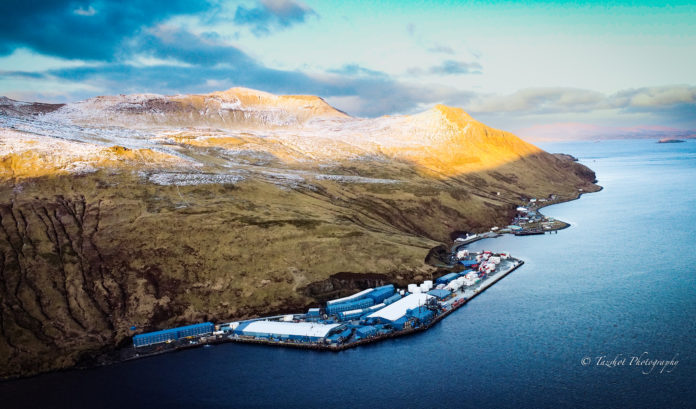Trident Seafoods CEO Joe Bundrant has come out in full support of a non-profit journalism organization that investigates human rights, labor, and environmental concerns in the seafood industry, particularly in the Chinese seafood sector.
Bundrant writes in a commentary on Trident’s website that reports published by the Outlaw Ocean Project (OOP) about conditions on Chinese fishing vessels and in the seafood processing facilities located throughout China are unacceptable to the industry.
“Trident supports OOP’s mission to advance human rights and supply chain transparency in China, and we’re grateful for the light that they are shining on where the industry is falling short,” he said. “Collectively, the global seafood industry can and must do better.”
OOC is a nonprofit journalism organization in Washington D.C. that produces investigative stories about human rights, labor and environmental concerns on the two thirds of the plant covered by water. Its website is www.theoutlawocean.com.
The latest OOP report contains details of how North Korean nationals cross the border between North Korea and China, where they’re forced into labor at Chinese facilities, Bundrant said. Prior to publishing its latest report, OOP contacted Trident to notify the company that, through their investigation, they found North Korean workers at a Trident supplier in Liaoning province in China.
“Without hesitation, Trident suspended trade with the supplier and initiated its own independent investigation,” he said.
During this ongoing investigation by Trident, the company has cooperated with OOP in advocating for a transparent and healthy seafood supply chain, Bundrant said. He noted that while operating in China for the past 20 years that Trident has engaged in a comprehensive Food Safety and Quality Assurance (FSQA) program, with an experienced production leadership team.
“In addition to third-party audits and certifications, we’ve also expanded our in-house Corporate Social Responsibility (CSR) program to include a full-time, on-site CSR presence in China through which we’re able to assess compliance with our social standards and offer training and guidance to ensure companies and processing workers alike understand our human rights requirements, grievance mechanisms and ethical workplace practices,” he said.
Bundrant said his company is working to complete its independent investigation, with a focus on determining if – or how – they failed to detect violations of Trident’s Human Rights and Supplier Code of Conduct policies, and that if gaps exist, Trident will fix them.
“Companies and consumers cannot continue to deny or turn a blind eye to the true cost of cheap seafood,” Bundrant said. “It is unconscionable. At Trident, that’s not who we are, and as a leader in the seafood industry for more than 50 years, it’s not who we ever want to be.”















